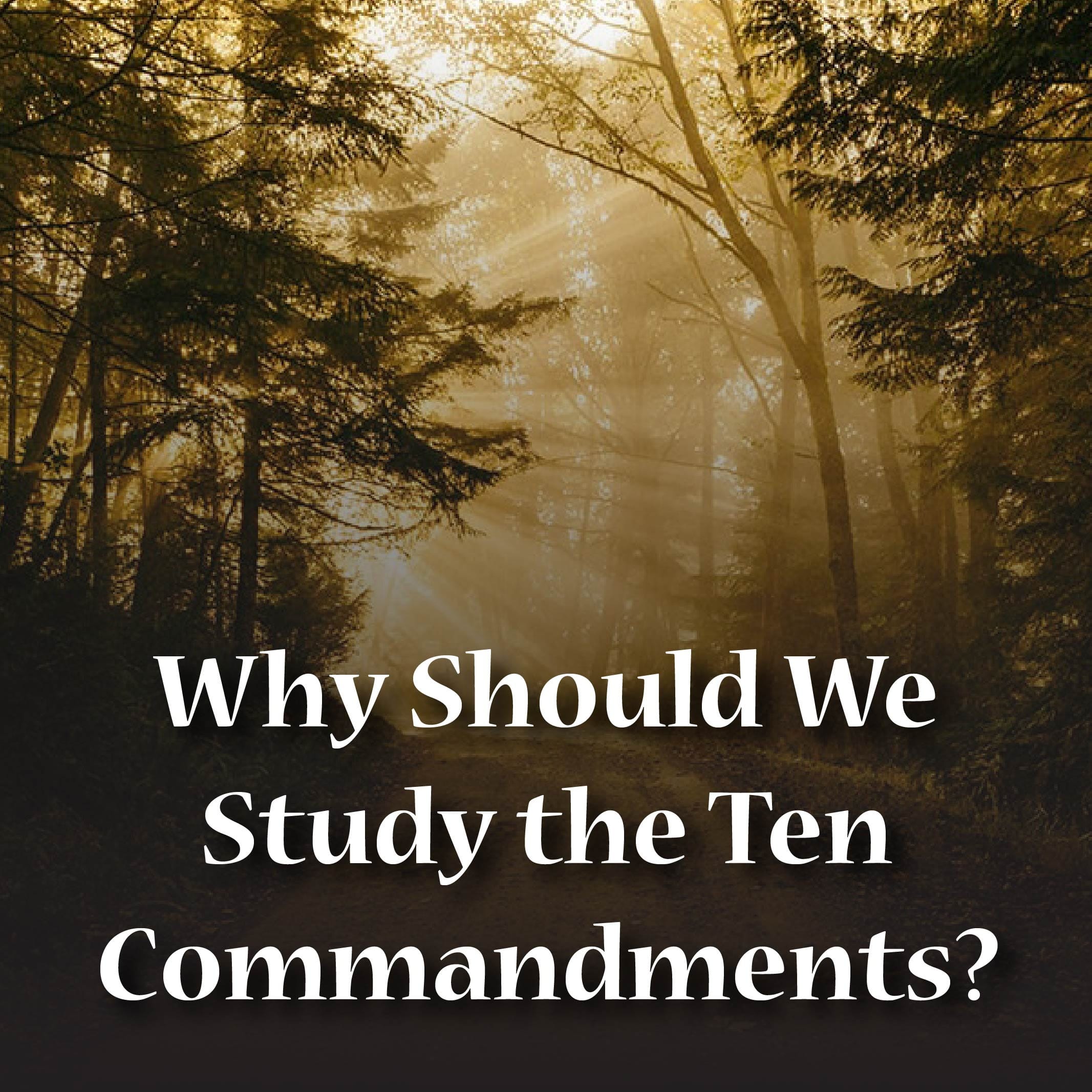“Do not think that I came to destroy the Law or the Prophets. I did not come to destroy but to fulfill. For assuredly, I say to you, till heaven and earth pass away, one jot or one tittle will by no means pass from the law till all is fulfilled. Whoever therefore breaks one of the least of these commandments, and teaches men so, shall be called least in the kingdom of heaven; but whoever does and teaches them, he shall be called great in the kingdom of heaven.” – Matthew 5:17-19
Jesus said that a person who teaches the commandments of God to people shall be called “great” in the kingdom of heaven. That’s a good reason for any pastor to do it!
The Ten Commandments are as misunderstood and misapplied as any portion of the Bible. They are not a set of “no-no’s” given to make life as uncomfortable as possible. They were given by God as guidance to rescue our life, to make us fruitful, and to make our lives more fulfilling. He has not given them to reduce us to something less than we might be if we served life on our own terms rather than His.
None of us are saved on the basis of our accomplishing the Ten Commandments or any other set of encoded laws. We’re saved through the grace of God in Jesus Christ, not by our works of righteousness. But the Ten Commandments are not optional for believers in Jesus Christ, nor do they become become irrelevant when we get saved. They are the pathway of knowing life to its fullest and living life to its limits.
“De-cobwebbing” the Decalogue
My father was a Navy veteran, and for him, the definition of “clean” was white glove inspection-prepared. He was a stickler for order and neatness. One of the things that was part of the “ship-shape” at our house was under the house where the spider webs collect. We had to go into the crawl space under the house and clean out all the spider webs. It wasn’t pleasant; as a boy, those spiders looked like they were going to eat you up.
But two good things resulted from doing that: my Dad always created a really nice storage area there under the house, and also a little play and hiding area for the kids. The “de-cobwebbing” process was part of being able to gain possession of the full dimensions of our property.
It’s easy to make the application of the analogy. For many people, the Ten Commandments are covered with “cobwebs” in the minds of people who see them as legalism likely to eat you up. I’ve seen children who grew up in households where, in the name of God, there came an oppressive kind of religiousness. When they find life in Jesus Christ and the liberty of forgiveness of sin, there comes the notion that the Ten Commandments have nothing to do with Christian life because—and then they’ve got text to quote—”we’re not under Law but under grace; Christ has redeemed us from the Law.” And a point of confusion exists that therefore the Law has no relationship to our life. Jesus does make it unnecessary for me to earn my salvation by fulfilling the Law, but He hasn’t exempted me from knowing the Law and learning to live it.
Living Life to Its Limits
In Exodus 20:2 God identifies the context of His giving of the Law:
• His authority (I am the Lord)
• His liberty (who brought you out of the house of bondage)
He wouldn’t have given us the Law if we didn’t need it. Coming out of a culture of oppression and slavery, the people needed to know how to live in liberty and with worth reinstated to their life.
The same that was true of Egypt is true of our culture; only the idols have changed. No longer the sun god, Ra, now the idol is sex or the great god of science. It’s amazing how people who worship the living God will be labeled as superstitious by the culture, while man surrenders to the superstition of empirical science which supposes that the only things that may be known with certainty are those things that we can quantify, dissect in the laboratory, or analyze according to their chemical components. That’s as superstitious as anything that went on in Egypt; its only advanced in its scientific insight. It still bows before another god, a god called reason that disallows the larger manifestation of God who is not only reasonable, but is the God of revelation beyond reason.
We need to study the Ten Commandments so that being emancipated from that kind of bondage to live free and in life. In our daily life, laws help us to navigate places of great risk. So too in our spiritual life. Laws restrict but they also protect, as does a seat belt in your car. The Law of God is intended for release:
• To recover our identity — When you’ve been enslaved long enough, you lose your sense of worth and judgment, your perspective. You are mine, the Lord says.
• To discover our destiny — Because we are His, and He is the Creator, we are destined to be incredibly creative.
• To remember our humanity — Because we’re human and not infinite, we have limits. The laws are given so you know where the limits are and won’t go beyond them, ruining the possibility of your fulfillment.
The giving of the Ten Commandments is the only occasion in human history when, at the same time, hundreds of thousands of people heard God speak from heaven. Throughout Scripture, the Lord says, If you will heed the words of My voice… Every one of the ten directives God spoke are for our blessing, not to show His muscle, intimidate people, or badger them with His greatness. They represent God’s heart toward man’s deliverance and destiny, and are given to make possible the prospering of our lives. The heart of the Law-Giver is a heart that calls us a treasure to Himself. God wants us to reach our destiny; and to realize His purpose in our life. That’s why we should study His Ten Commandments.
Copyright 2015 by Jack W. Hayford




